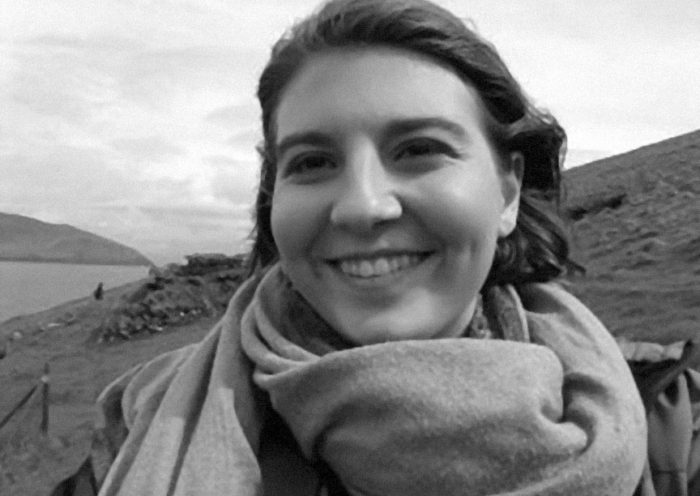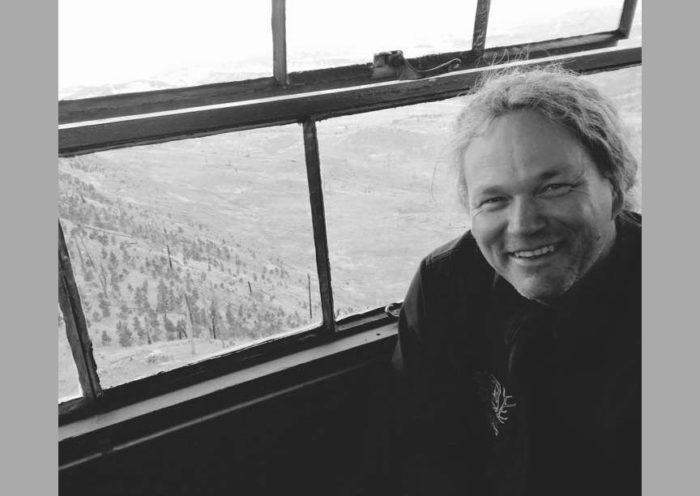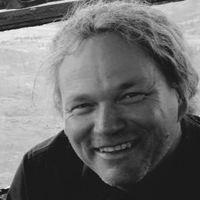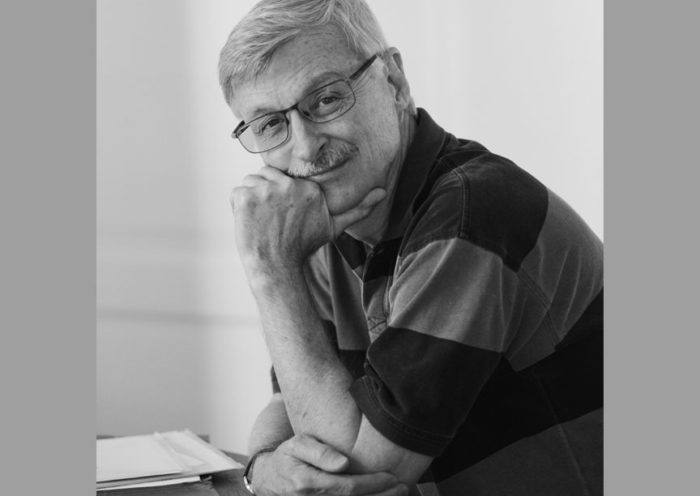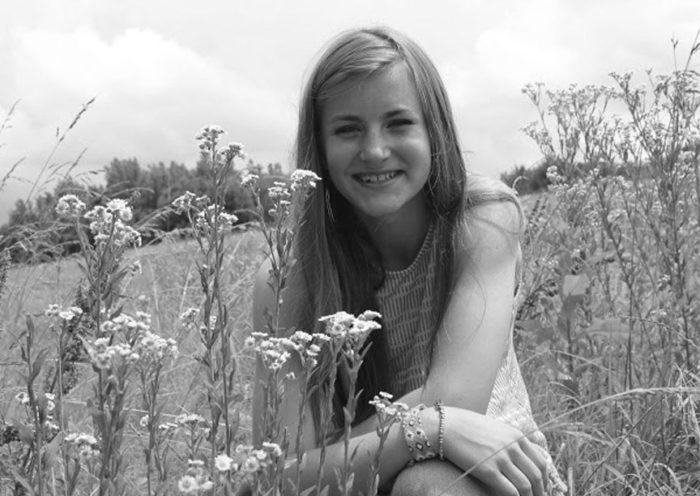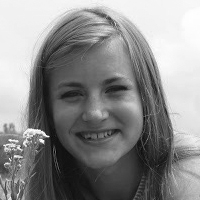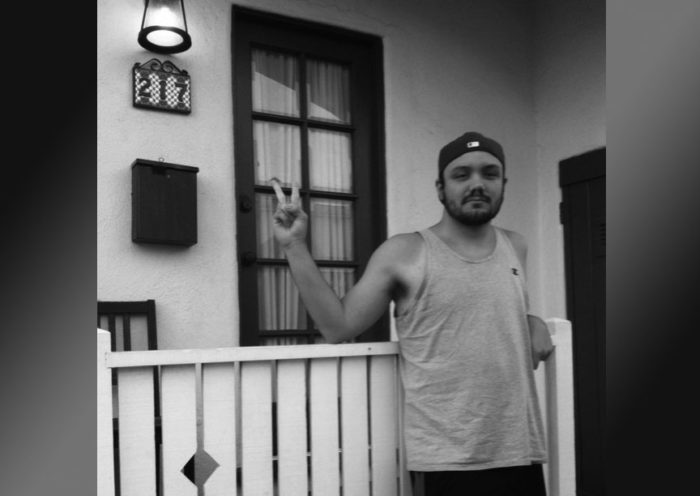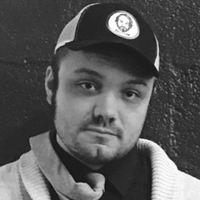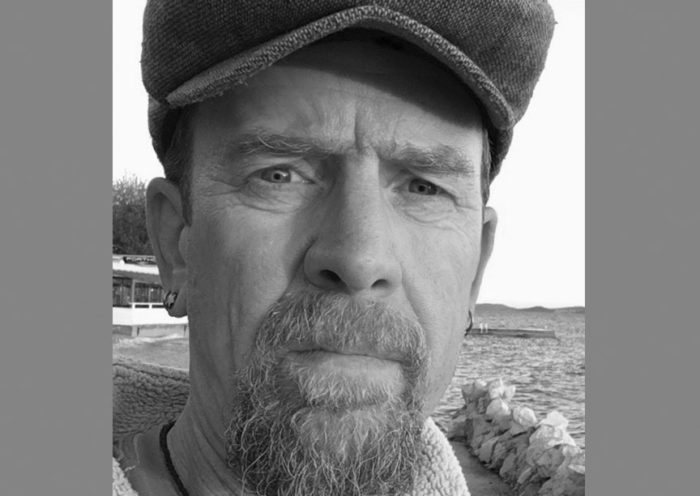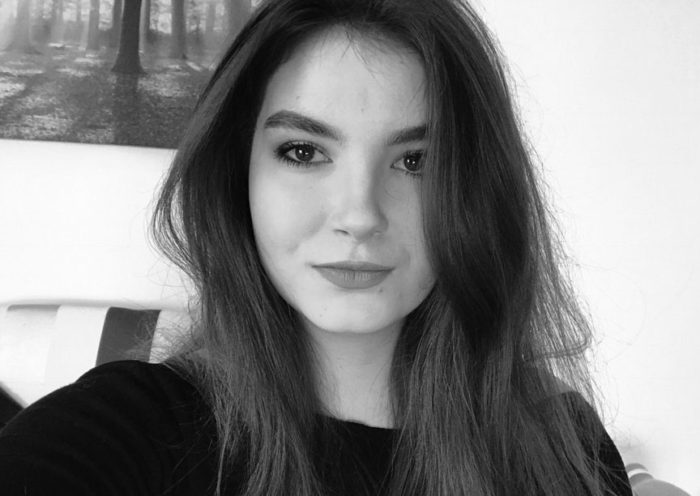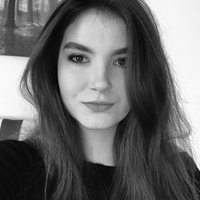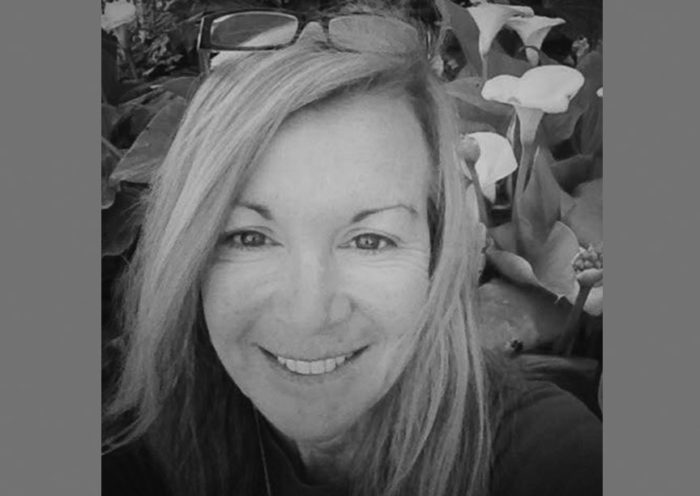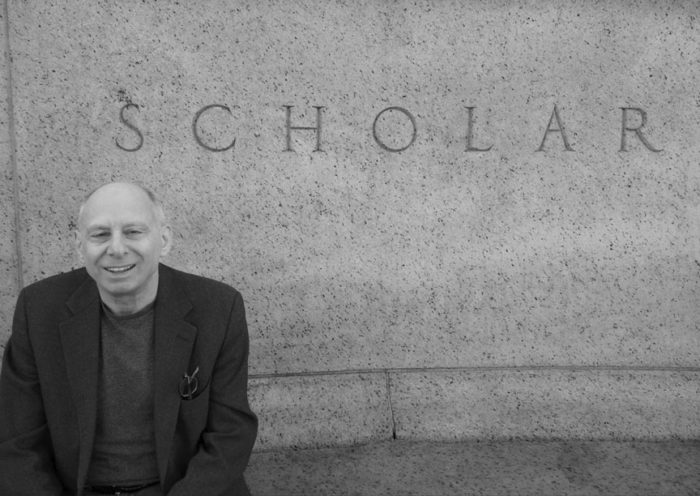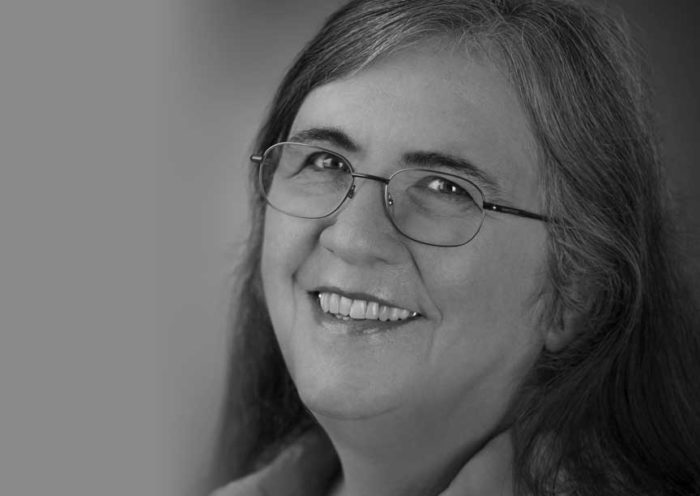A DAMSEL IN BEDLAM
by Kat Devitt
Bethlem Royal Hospital
London, 1869
As patients paced the halls and wailed in corners, William never imagined finding his childhood sweetheart in Bedlam. She’d behaved with high spirits when they were young, always taking his hand and leading him astray, but there’d been no indication of insanity.
Even now, as William watched her, he saw traces of his darling as she sat rooted in a chair, her flesh pale like ivory against the satin blue of her dress. Her bronze hair cascaded over her shoulders like waterfalls. She looked very much as she had ten years ago, when they’d loved each other with all their hearts.
“William, come see.” Her smile flashed as she sat on a stool, her hand waving him over. “I’m rather proud of this one.”
Rays curled about her cheeks in the sunlit drawing room. William wanted to run a finger along her soft flesh, to inhale her rosy perfume, but he couldn’t, not with her parents lurking in the parlor down the hall. “What have you done now?”
Her moss green eyes turned on William, and he found all the world’s happiness locked within her gaze. He craved nothing more than to share in it with her, but it was near impossible. She was a gentleman’s daughter.
“Isn’t it wonderful?” she asked. “It’s you.”
William tore his gaze from her long enough to look at the canvas set on the easel before her. Staring back was his likeness: a lad of nineteen with naïve, blue eyes longing for something beyond his reach.
William turned to her with an ache in his gut. “It seems as if the student has surpassed her teacher.”
“And an excellent teacher you’ve been.” Her gaze returned to her work. “You may keep it if you like.”
“I will, if you don’t mind.”
A few curls fell against her nape as she shook her head. “Not at all.”
He couldn’t resist. He blew, making those tendrils fly.
She whipped around in laughter. “How silly you are.”
Her smile filled William’s small world, and without thinking, he acted. Her skirts shushed as she slid off the stool and into his arms. She didn’t hesitate, because it wasn’t the first time they’d kissed
“You’re mine,” William whispered as he brushed his lips against hers. “You always will be, no matter the challenges.”
And as she laid her head on his shoulder, the door creaked open. Her father appeared with death in his face. A death marked for William…
Her beauty was a specimen preserved in time, but her spirit was changed. Somehow broken, forgotten.
Patients sat along the walls of the female ward, talking to others, real or imagined, while Eleanora languished alone. Her thick eyelashes spread against her cheek like a fan as she watched her hand move in circles. She held nothing, and nothing rested before her, but she made strokes in the air as if she painted a picture begging for freedom from her head.
She glanced up from her invisible work.
William took a sharp breath. Does she see me?
He stepped into the hall, hiding himself from her view—if she even noticed, if she was even coherent.
His first day in Bedlam’s employment, and she was here. He’d thought about her constantly over the years. What happened to her after her marriage? How does her husband treat her? Does she ever think of me? He’d never forgotten about her as if her shadow walked alongside his every day.
Now she was one of the hundreds of women in his care: buying clothes, food, bedding, and whatever else they might need. It wasn’t the reunion he’d imagined every night for a decade. She might not remember him—or herself. She might think of herself as another person or in another time.
William peeked around the corner. Her magnificent eyes were hidden away as she gazed at her lap. Her head hung low, as if she was a broken doll. If she did have any concept of reality, she looked too fractured to repair.
A patient screamed. “Death to the queen!” She climbed onto her chair and punched a fist at the heavens before a caretaker pulled her down.
How could Eleanora thrive in such decay? he wondered.
William clutched his chest as his heart banged against his ribs. He walked down the hall to his office, the head steward’s office, and continued his work for the day, but Eleanora never escaped his mind.
****
“There’s our Willy!” Oscar boomed for all the pub to hear as he stumbled out of his chair, already halfway into his spirits. “Come sit.”
“Slow down, Oscar.” A groan came from Charles, Bedlam’s doctor extraordinaire, the most sensible of their trio. “Harriet will not like you staggering home.”
“I need to drink to be able to go home to her and our three brats.” He raised his mug in a salute, then drank heartily as if he was a Viking of Valhalla.
William pulled out a chair, its scratch along the floorboards lost in the singing, celebrating, and chatter. His shoulders relaxed as he embraced the noise after a long day of insanity. His mind was still emblazoned with the image of a man being wrestled to the floor as he wielded a handmade knife, claiming he needed to slay the dragon standing in the courtyard.
“I need a drink,” William announced.
Charles passed him a cup. “Here’s your brandy.”
“Ah, you know what I like.” William lifted it toward his friend in thanks.
“You know what else you might appreciate?” Oscar winked as if he had the most original thought in the history of thoughts. “A beautiful woman in your bed.”
“What I need is a machine to take me back five or ten years when I had the chance at a successful painting career.” William tipped back his glass. “And love.”
“I’m neither an engineer nor a scientist, but what I can do is fetch you a bit of skirt.”
Charles leaned back in his chair, his arms crossed over his chest. “And how will you supply him with this woman, Oscar?”
“Why, look around you.” He stretched out his arms. “There’s a bounty of breasts.”
Oscar smiled as he scanned the dimly lit pub. He lingered on a brunette lounging on a balding man’s lap. Her ringlets fell over her breasts, exposed by a nice dip in her emerald green dress. He seemed to forget all about finding William a woman as he stared at her décolletage.
Charles gave William a sidelong glance and a shrug. The somber lines around his mouth seemed to say: What will we do? It’s like trying to control a dog in heat.
Poor Harriet. She’d not be pleased when her husband came home tonight.
“How was your first day at Bedlam?” Charles asked.
William’s fingers tapped against the half-empty glass. “Unique,” he said. “Thank you for securing me the position.”
“No need.”
“I would’ve never gained it on my own credentials: the failed painter following his father’s footsteps into stewardship.”
“You’re too hard on yourself. You’ve worked as a steward for a few reputable places.”
“For private families. Never for a large institution.” William sipped. “Or an asylum. If you hadn’t given me a recommendation, I’d be bleeding my hands in the workhouse.”
William allowed himself a peek at a few of the doxies strutting about. Oscar was right. There were plenty of women seeking company for the night: short ones, tall ones, slender ones, fat ones, pale ones, dusky ones, French ones, German ones—an assortment like sweets at a baker’s shop.
He sighed. “Maybe I do need a woman.”
Especially if he was envisioning pies and pastries sauntering about the pub, but none of them tempted him.
“What you need is a wife.”
William steadied his gaze on Charles. “Why do you think so?”
“You’re not the sort to spend a night with a woman and move on.” He waved a hand at Oscar, his mouth agape. “This is not who you are. You need a companion and lover.”
William nodded. “Someone to hold at the end of each night.”
“Precisely. My darling Emma gives me comfort after a long day doctoring patients.”
Oscar tore himself from his leering long enough to rejoin with, “And my Harriet gives me a good swat when I come home.”
Charles arched a brow. “You deserve it with your dallying.”
“Oh, every bit. It keeps our passion alive.” A buxom blonde stole his attention as she sauntered by, leaving a fragrant trail of lavender. “Excuse me for a moment.”
“Oscar, think of Harriet.” William made to grab his wrist, but he was too quick. Oscar slammed his mug on the table, shaking it on its legs, and pushed himself up, his boots clunking as he staggered after her.
Oscar’s voice trailed off as he asked, “Come here, darling. What’s your name?”
The blonde turned around with a shy smile. A few of her teeth were missing, but it didn’t seem to dissuade Oscar. Her breasts strained against her bodice, which more than compensated for her lack of pearly whites.
“She’ll murder him one of these days,” Charles said.
“Aye.” William took another sip of brandy as he watched Oscar cozy up to the buxom blonde. He drew her close and whispered into her ear. Her cheeks colored, and she slapped him straight across the mouth.
Oscar grabbed his face. “What was that for?”
“I’ll no’ d’ such a filthy act, ye mongrel,” she shouted as she stormed towards the door.
“Not even for a guinea?” he called.
She stopped long enough to spit in his direction before leaving the pub. A round of laughter rang out at Oscar’s expense, her cloud of lavender polluting the air long after she disappeared.
William choked on the odor. “I must be on my way. I’ve had my fill for the night.” He replenished his lungs with a breath, but it ended on a cough. Damn lavender. Eleanora always smelled gentler, softer, like a rose garden.
Charles swatted the air in front of his nose. “Early rise tomorrow?”
“No, I wish to paint for an hour or two before falling asleep.”
William thought of Eleanora in the women’s ward, alone, her hand moving in circles. He remembered teaching her to move her hand in such a way, to flick and flourish with a brushstroke.
“I’ll tell Oscar you left.” Charles lifted his glass toward William. “Enjoy.”
William stepped out into a warm drizzle as fog filled the streets with gray. Few tarried on the road, ducking into doorways and pubs to keep dry, but he risked an illness to make it to his doorstep.
He picked his way on the slick cobblestones as his thoughts drifted toward Eleanora. No other woman could fill the hole she’d left in his heart. He’d tried many times over the last decade to replace her: an affair with a widow, a liaison with a shop girl, an engagement with a poetical protégé. But no one could replace Eleanora.
William started to move his hand in circles. “What is it you need, love?”
William turned up his coat collar to keep his neck dry, but with little success as raindrops splattered on his hunched shoulders. He hurried home and into his dark, dry parlor.
Droplets sprinkled onto the floor as he removed his coat. He threw it over a wingback, a true-blooded bachelor, when a set of eyes drew his gaze. Over the mantel, he found a naive, blue-eyed lad immortalized on canvas.
Looking at Eleanora’s paintings through the shadows, he knew. In an instant, he knew.
William smiled as he shook off raindrops and retreated to his parlor—not to paint, but to gather supplies for Eleanora.
****
“Give these to her.” William handed a paintbrush and palette to Charles. “Her easel, canvas, and paints are by the window at the end of the hall.”
Charles stared at the tools in his hands. “Why am I handing these to a patient?”
“She enjoys painting.”
“Yes, but then, why don’t you give these to her?” Charles shoved them against William’s chest. “It’s your responsibility.”
“I can’t.” William shoved back. “Please, I’ll buy you an extra round of drinks tonight.”
“You know I only ever have the one.”
Somewhere in the ward, a caged bird beat its wings. It chirped through the bars, as if frustrated by its imprisonment.
William huffed. “I’ll take Oscar home tonight.”
This gave Charles pause. “For the remainder of the week.”
“You have a bargain.”
Charles looked down at the brush and palette he held awkwardly. He took a breath, puffed himself up, and started for Eleanora. William edged closer to the fretful bird. It wasn’t the most inventive hiding place. However, it was far enough away where Eleanora couldn’t see him, but he could watch her.
She sat in the same chair, making the same gestures as yesterday. A bronze curl fell at her cheek, her breathing steady. She wore a cream-colored dress, highlighting her emerald eyes.
Eleanora didn’t look when Charles approached. She didn’t speak when he said a few words, but when he placed the paintbrush under her nose, she emerged from her spell.
Her chin tipped downwards as her gaze fell on those bristles, the silver band at the base glistening in the sunlight. Her raspberry lips curved into a smile as if a gem gleamed temptingly before her.
She reached out and grabbed it.
Warmth spread through William’s chest. He wanted to rush across the ward with a whoop, collect Eleanora into his arms, and swing her round and round at this little breach into her world.
But mental leg irons restrained him.
She might not remember him. She might think him a villain attacking her—or some other hallucination. Seeing her happiness would need to be enough.
Charles waved a hand towards the window, and Eleanora’s gaze followed to the easel and its effects. She stood up, clutching the brush against her bosom.
William read her lips. “For me?”
“Yes,” Charles said.
Charles left Eleanora to explore her new wonders. He settled at William’s side, opposite the bird, as William watched her brush her fingertips against the blank canvas. Soon, it’d be filled with her imagination.
Charles cleared his throat. “By the way you look at her, I’d think you’re in love.”
A smile grew on William’s lips as she dabbed bright paints onto her palette. Those colors would give blood to her life’s veins.
“I’m only happy to see the pleasure on her face,” William said.
“Why?”
“I knew her when we were young.”
Charles stepped into his view, his charcoal brows arched in judgment. “How do you know her?”
“My father served as a steward in her household.” William peeked past him. “When I was enjoying some success as an artist, her parents hired me to give her lessons. They trusted me as the son of their respected servant.”
Charles cleared his throat again. “Stop staring at her. Others will notice.”
“Who?” William asked. “We’re the only staff here at the moment. Only the insane watch.”
“Not all the patients are lunatics.” Charles directed his gaze to the bird on its perch, chirping till its last breath. “Damn bird never quiets. It’s supposed to soothe the patients, but all it does is irritate my nerves.”
William waved at the bird, and it fell silent. It’s eyes followed his hand as if it was a great beast come to capture it. “Are your nerves better now?”
“Sorry, it’s been a long day. This morning a patient tried to convince me she was the Virgin Mary come again, and that the baby in her belly was our precious savior. However, she’s not with child.” He rubbed at his temples. “What happened?”
“Regarding?” William asked, mentally off balance after that implosion.
Charles jerked his head towards Eleanora. “Her lessons.”
William slipped through his memories and returned to that fateful day in the drawing room. He’d forever remember her smile, the feel of her lips, and her father’s footsteps. Her lessons ended with his dismissal, right there as she warmed his arms. A week later, she was betrothed.
But William couldn’t tell his friend. At least not the whole truth. “Her lessons ended around the same time my art began to fail.”
Charles studied him. “Do you know why she’s here?”
William shook his head.
“Her husband had her confined based on a moral defect of her character.” His voice lowered a degree. “She sought a divorce from him.”
William numbed. His mind blackened as if he’d been dumped into a vat of icy water. Divorce? And that bastard had her locked up instead?
His fists tightened as anger thawed him. If Gideon James stood before him, he’d direct a blow at the bastard’s jaw. Hell, he’d choke Gideon for imprisoning his wife in such a place.
But this meant something else. Eleanora wasn’t insane, only considered morally criminal.
Charles tapped his shoulder. “Stop looking at her like a lad in love. Gossip will start.”
“She’s an old friend.” William smoothed out his hair. “Nothing more.”
“Mhmm.” Charles pursed his thin lips, not believing a word he said. “I have patients to tend to. I’ll see you tonight, and remember our bargain.”
Charles clapped William on the back, his gaze expressing don’t talk to her, leave her be. And with that bit of unspoken wisdom, he exited the ward. His whistle echoed in the hall, fading with his footsteps.
William stayed a few minutes longer. It seemed a lifetime watching her as she took the paintbrush and dabbed it into the blue. She slashed it across the canvas, like a river being born from her imagination.
Even if she still had her sanity, William didn’t know her feelings. Did she still love him as he loved her? Or was he a dalliance she remembered fondly while drifting into sleep? Or worse… Did she not remember him at all?
It was enough to enjoy her from a distance. At least, William tried to convince himself of this as the bird started to chirp again—and louder than before.
William tapped a finger against its cage door. “Shh, my little friend.”
It’s head turned from side to side, watching William’s finger like a worm. This, at least, shushed the bird.
“Now stay quiet.” William pressed a finger over his lips, as if it’s tiny brain could comprehend the gesture. Then he looked up…and met Eleanora’s deep green gaze.
****
A chill crept through Eleanora as she sat perched on a stool in her airy room. While sunlight poured through the window, the bars in front of the glass reminded her of her imprisonment. Even as her soul sang for freedom, her brush stroked the canvas, and she pretended to not notice William standing in the doorway behind her.
He’d been watching her for weeks now.
In the halls.
In the garden.
In the female ward. William thought he could hide behind a birdcage, but his gaze hadn’t escaped her.
She’d chosen to ignore him. He was the reason behind her newly acquired art supplies, but this small freedom came only by the grace of his love. She had no other liberties in this dark place, and she’d rather not risk losing these few treasures.
Because what if he’d hated her for marrying Gideon James? Eleanora’s brushstrokes wouldn’t be creating the longing in her trapped damsel’s gaze nor the plumes of the dove she held on her finger. Not the window swelling with sunlight, nor her unspoken wish for freedom.
Eleanora wouldn’t be painting her likeness.
Maybe she owed William her thanks for the oils and brushes. Maybe he deserved a display of excitement, such as her whirling around on her stool and informing him a lucid brain worked under her skullcap.
But Eleanora couldn’t do it.
After her father caught them and forced her hand into an unwanted engagement, William never fought for them. He never answered her letters pleading for an elopement. He never came on his white horse and whisked her away to Gretna Green. Eleanora’s girlhood dreams died with his silence.
But now, ten years later, standing in her doorway, he was anything but quiet as his foot scuffed against the wooden floor.
“I know you’re there, William.”
An electric intensity whipped through the room. “Eleanora?”
“I haven’t any other name. Unless you’d like for me to adopt a new one, like so many of my companions here.”
“Where’s the humor in such a statement?”
William’s steps tapped up to her stool. He hesitated, and so she did for him what he couldn’t for himself. She turned to face him for the first time in a decade. He stepped back, as if startled by her sudden movement.
“Your wit has dulled if you cannot see the irony in the freedoms I have behind these walls. I can be whoever I want.” She tapped the brush handle against her mouth. “I could be Joan of Arc whispering to the saints in her head, but there’s already one here. Maybe Eleanor of Aquitaine overseeing her court of love?”
His nostrils flared. “You’re none of them.”
“You’re right,” she said. “Why stay a woman? I could easily adopt the persona of a man, but who shall I be?”
Eleanora’s gaze roved over William. He looked much older than his twenty-nine years. His waistcoat hid a small gut, and his eyes carried a sadness never there before. His fingers were long and slender, perfect for holding a brush, but he was a failed painter if he worked at Bedlam. Despite his melancholy, he clung to claims of handsomeness in his gentle, blue eyes, full lips, and tangled, coal-black hair.
“You’re Eleanora James, wife of the respected barrister, Gideon James.”
“I could’ve been your wife.”
William jerked back as if she’d slapped him. She sorely wanted to for his long absence from her life, but violence wasn’t necessary. Her verbal strike made his cheeks flush with crimson.
“I choose to be Henry VIII,” Eleanora continued. “I can cut off the heads of two of my spouses. I only have the one, so I’ll start with Gideon, but that still leaves me a head.”
“Quit talking madness.”
“But I’m in an asylum. I’m supposed to act like a lunatic.”
“You’re not.” William stepped closer, his breathing quick and steady. “You’re the woman in your painting, even if you did change the color of her hair.”
Eleanora turned to her fair damsel resting in the canvas, cascades of chestnut hair falling over her shoulder. “Don’t I look lovely as a brunette?”
“Even if you were bald, you’d still be the most beautiful of women.”
“You haven’t held too many women then.”
William brushed his knuckles against her cheek. “Because I’ve only wanted you.”
Eleanora’s heart fluttered as if a butterfly was caged within her ribs. He still spoke like a youth in love. She wondered how he romanticized her, and how often.
“Do you know why I’m here?” Eleanora asked.
He blew on her nape, sending chills crawling down her spine. “Only that you asked Gideon for a divorce.”
“Anything more than that?”
“No.”
“He had an affair with his clerk’s daughter, a young girl not long out of the schoolroom. He’d lavished her with gifts and pretty baubles. Eventually, he got her with child.” Eleanora bit her bottom lip, drawing blood into her mouth. “I’d turned my cheek to many of his infidelities, but I couldn’t handle this last betrayal. It was worse than the other women, because he’d given her a permanence when he set her up in a house in Cheapside.”
William lowered himself to his knees. He grasped Eleanora’s chin, forcing her to look at him. “Why did he send you here instead?”
“He’d rather dispose of an inconvenient wife by manipulating his connections in London’s courts and institutions than risk his good name in a scandal.”
Her chin quivered at the truth that lived with her here in Bedlam. Even though she never loved Gideon, his betrayal hurt. They had said vows before an altar, and he had defied them with each woman he charmed into his bed. It’s as if she never mattered, as if she was a pawn he married for a substantial dowry.
“Eleanora,” he murmured, “I still love you. When I lost you, I stopped painting. My art suffered, because I hadn’t my muse to inspire my work.”
“I don’t give a damn about your art.”
Eleanora’s eyes misted over as she shook her head. It couldn’t be. She had no love to give in this madhouse, and least of all, for him. He had abandoned her. He hadn’t the right to beg at her knees.
“Maybe I’m bitter. Maybe I’ve had too much time to think during my stay here, but you were never far from my thoughts, William.” Eleanora wiped away angry tears. “You ask for my love after years without you, when it was you who left me.”
William squeezed her hands as if he might wring away the last decade. “I needed to protect my family.”
“I sent you a dozen letters, and you never wrote back.” She shoved his clawing hands away. “I choose to be Henry VIII, giving me two heads to cut: Gideon’s and yours.”
His gaze crystalized into sadness. She saw him, her sweetheart from all those years ago, but their childhoods were dead, and she had no flowers to leave on their graves.
“Eleanora, please listen to me,” he said, his voice shaky. “I couldn’t risk my father’s place in your household, because he cared for my mother. I had little fortune as an artist. I couldn’t support them if my father was sacked, much less a wife. I never wanted to hurt you.”
“And yet you did.”
Eleanora’s eyes sought out the blue skies beyond the window’s bars. She wondered what it might be like if she sprouted wings. If she could break through the glass, find a flock to join, and fly far, far away from here.
“Let’s try again. Let’s at least be friends—”
“Thank you for the canvas and paints.” Eleanora made a little salute. “But I, Henry, now send you to the block.”
And with that, Eleanora turned from William. She took up her brush and continued painting, shedding those years of resentment. Eleanora focused on the damsel and the dove in her hand, because in this horrid place, her imagination was all that existed.
****
Eleanora never liked when he visited. His polished boots clicked on the floor, and his smirk gave her migraines. He’d stay to brag for hours about a successful court case or the love for his new son—of course living far apart from him, so as to not jeopardize his career.
Here and there, she’d jab him with a bit of wit, but he knew full well she couldn’t do more than sit idly and listen. She was a caged bird for display. Nothing more.
But today was different. His mouth pinched at her painting. His eyes blazed with annoyance. She wondered if he looked like that when arguing in a courtroom or with his darling mistress.
“What’s this?” Gideon asked.
“A square with colors on it.”
“None of your sauciness.” He spun on his heels like a lieutenant about to give orders. “Why do you have this?”
Eleanora folded her hands together. “The new steward provided supplies for me to paint. What you see is my work.”
“I never approved this.”
“Must you? I thought you left me here to languish, like the husbands of so many other patients.”
He prowled closer, his steps soft and slow. “Who gave you the right to paint?”
“Someone kinder than you.”
Eleanora and Gideon stood inches apart. He towered over her with his Frankenstein-like height. If bolts jutted from his neck, he could be Mary Shelley’s creature, except his hair was too light. He leaned closer, a thread of gold falling over his forehead.
“Give me a name,” he murmured, his breath hot on her cheek.
Eleanora kicked up her chin. “What’s in a name? That which we call a rose by any other name would smell as sweet.”
“Now, now. None of your nonsense.”
“What?” she asked, smiling sweetly. “Do you not like Shakespeare?”
He snarled in reply. She had quoted the great Bard to him, and all he could do was look like a bear with its paw caught in a trap. No wonder their marriage crumbled.
“Well, then.” His knuckles brushed along her cheek. “I’ll find out on my own.”
Eleanora turned her head away. “You’ve taken everything from me. Why this, too?”
“Because you wished to leave me.” Gideon glanced at the painting. “But I’ll take a part of you.”
Gideon grazed her arm as he walked past her. He posed with his hands on his hips as he studied her damsel. Being married to him for ten years, she could hear his thoughts in her head. She knew what he was after.
Eleanora stormed up to him, her hand falling on his shoulder. “Leave it alone, Gideon.”
He shook her off.
“It’s a lovely piece.” Gideon’s paws clutched the canvas and lifted her damsel into the air. “I think I’ll take it home and hang it over my bed, so I might look on it and think of you.”
Hah! Remember his imprisoned wife as he led throngs of women into their—his—bedroom. Her artwork deserved a better home than over his head—unless it came crashing down on his skull.
Her eyes burned. She tried to blink the tears away. “You won’t take this from me.”
“And who will stop me?” He grinned. “You?”
“Leave it.”
He continued on. “Or maybe I’ll take this to Marianne’s home and hang it in her parlor. She’ll adore this piece.” His lover, the mother of his child. Eleanora’s heart burst into a fit contained for too many years to count.
“Leave it,” she shouted, her voice rising. “Leave it, leave it, leave it!”
Gideon looked down at the gold band on his finger and then to hers. They were linked for all time, till death do they part, whether they wished it or not. They’d said the words, even if they rarely acted upon them.
“I’m your husband,” he said. “You’ll do as I say. Be who I command.”
“I will do no such thing.”
“I’ve owned you since the day we married.”
Eleanora slapped him across the face, a crack echoing through the room. She took a breath, finding her lungs featherlight and her migraine gone. “A ring doesn’t signify ownership.”
His black eyes glowed like embers. “It’s your behavior,” he said, his fingers grazing the red handprint on his cheek, “that has led you to this place.”
“Then I suppose I’ll be here for a very long time.”
“It’s your choice.” He smiled. “I’m going to the head steward straightaway. You won’t be painting anymore.”
“I’ll find other pursuits.”
“And I’ll crush them all.” He strode toward the door. “Thank you for the painting, my dear. Marianne and I will treasure it.”
Gideon’s footsteps clicked down the hall. He emptied her world in one stroke.
Eleanora fell onto her bed, a thin cot on a metal frame tucked against a whitewashed wall. It creaked in protest at her weight. A sound for her ears, and then nothing but silence to feed her thoughts.
Her gaze dwelled on the empty easel; her fingers entwined in her lap. Her paints were scattered on the table beside it. Her palette was wet with fresh paint, and her brushes were lined up according to size. It was familiar. It was home, but Eleanora’s damsel was gone, taken captive by a giant ogre.
Eleanora collapsed onto her dusty white sheets, her wings clipped. She cried for what seemed like hours as the sunlight faded, the shadows shrank, and her tears dried. If she had anything to give before, her soul was now stripped into a desert.
“He’s taken everything.” A tear loosened. “Why not my sanity, too?”
“He hasn’t taken me from you.”
Eleanora bolted upright. She still clung to her pride as she found William in the doorway, his knuckles white from gripping the knob. She had sent both men to the block, but yet they kept reappearing into her little world.
“Why are you here?” she asked, wanting nothing but loneliness.
“Gideon came to my office.”
“Did he recognize you?”
“No. He was too deep in his tirade to notice.” He paused. “May I come in?”
“Don’t bother. I know why you’re here.”
Eleanora slipped further into her sadness. Away from Bedlam and into her mind. Her hand started to move of its own accord as she envisioned her sorrows. Nighttime sprang into her mind, and a woman—wretched and alone.
“Eleanora,” he whispered.
A tower. Eleanora saw a woman trapped watching as fireflies waltzed across a field. She wanted to dance with them, but how did she leave her home? How did she escape from where the ogre had placed her?
“Eleanora, love.”
“Yes?” she whispered.
“Why do you think I’m here?”
“To tell me I can’t paint anymore.”
In the world outside her own, Eleanora heard the door close on a creak. Footsteps approached. Someone stopped her hand with a firm grip.
She blinked.
William knelt on the floor, his two hands creating a shell around hers. His thumb stroked along the ridges of her knuckles. “Don’t retreat again.” He squeezed her hand. “We’ll hide your painting from him, and you can use my office for space.”
“Won’t that jeopardize your post here?”
“I don’t care.” William’s gaze gripped her, lonely and forgiving. “I still love you. I’ll do anything for you.”
It struck Eleanora. He was on his knees professing his love. This was a marriage proposal without the question.
“What will you have me do?” he asked.
Her wedding band glimmered in the sunlight peeking through the window’s bars. If only she could be rid of it.
“Free me, William.” Eleanora touched his cheek, her heart softening. “Please.”
“We’ll find a way.” William kissed her fingers. “And this time, I swear to you, I won’t abandon your side.”
He smiled up at her, the first she’d seen on his lips in a decade. It was the sun emerging from behind a long storm, it’s light chasing images of lonely damsels from her mind.
BIO

Kat Devitt’s work has appeared in or is forthcoming in Tales to Terrify, The Weird and Whatnot, Corvid Queen, Books ‘N Pieces Magazine, TWJ Magazine, Suspense Magazine, and other venues. Kat is a Puschart Prize nominee, Best of the Net nominee, and placed as a runner-up in OPQ Press’s 2019 Spooky Samhain Contest. She also acts as the fiction editor for Bold + Italic. If you’d like to learn more about Kat or her writing, please visit https://katdevitt.com/.

